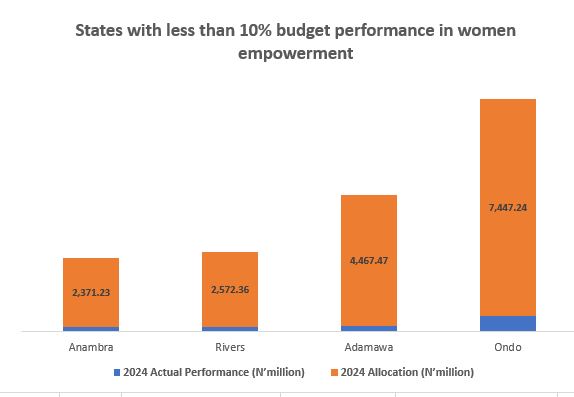Call it politics or human manage- ment, Lagos State seems good at it- when to strike, retreat, sober or be forceful.
In three weeks’ time, the state govern- ment would be roaring against commercial motorcycle operators within the Lagos metropolis.
Some months ago, that was not the case.
It started in 2012 when the State House of Assembly led then by Adeyemi Ikuforji (speaker) acceded to a law proposed by the executive arm of government led by Babatunde Fashola, the immediate past governor of the “Centre of Excellence” state.
The Fashola led government had seen the compelling need to curtail the excesses of commercial motorcycle (Okada) opera- tors who had turned the state metropolis into one big accident camp.
There was hardly a day that Lagos did not record deaths arising from okada accidents.
It became obvious that more and more people, most of them unlearned in the art of okada riding were relocating from various states across the federation to engage in the business of commercial okada operations.
The consequence was fatal and grave- loss of lives, limbs, fractures and permanent disability.
The emergency ward of the National Or- thopaedic Hospital, Igbobi in Shomolu area of the state soon became a home to victims who were lucky not to lose their lives but ended up with broken limbs.
The manage- ment of the hospital raised the alarm.
Aside human losses in accidents, armed bandits took advantage, robbing their victims and getting away with the aid of motorcycles.
Something needed to be done and Fashola rose to the occasion.
Then the law came: Lagos Road Traffic Law (2012). A robust review of previous road transport/ traffic laws in the state.
While details cannot be provided here (for want of space), suffice to mention that the new law among other provisions expressly denied recognition to okada as a means of public transportation in Lagos.
Before it was passed, the legisla- ture called for a public hearing.
Public opinion swung in favour of re- striction. With the law passed and assented to by Fashola, the restriction came, followed almost immediately by enforcement.
The police and other traffic law enforcers including the Lagos State Traffic Manage- ment Authority (LASTMA) and the Federal Road Safety Corps) had the task of enforcing the law.
Specifically, the new law bars okada operations from major roads, highways and bridges, restricting them only to inner roads where cars are not deployed as means of public transportation.
In all, okada opera- tions were barred from about 500 roads in the state.
Criticisms here and there, but the Fashola government typical of itself stood its ground.
Within the first few months, statistics from the National Orthopaedic Hospital and the Lagos sector command of the FRSC was impressive.
Okada accidents had gone drastically.
From about 646 accidents recorded monthly in the state before the enactment of the law in August 2012, the figure nosedived to about 120 cases by the last quarter of 2013. Here is what Fashola said.
“Before the road traffic law, okada-related deaths in the state on monthly basis were between 12 and 15, but only four deaths have been recorded so far this year (2013).
“If this is what the law has been able to achieve, I am proud to be the head of the government which made it possible.”
With this record, critics of the law soon began to see wisdom in its enactment and the restriction order. Vilification gave way to encomiums.
Then came 2014, the enforcement began to witness a slide. 2015, an election year was approaching.
By the last quarter of 2014 into the first of 2015, the enforcement of the law that had saved lives, reduced patients at the emergency wards of orthopaedic and other health institutions in the state, and drastically cut down okada accidents, had nosedived to zero.
LASTMA officers had executive directive to look away.
As expected, anarchy returned to the roads.
Expressways, bridges, major roads became areas where okada operators com- pete for available space with trailers, petro- leum tankers, haulage trucks, commercial buses and cars.
Lagos again relapsed into the old order under the nose of the same government that set out on a rescue mis- sion.
Decency, decorum, sanity and safety of lives of citizens sacrificed on the altar of politics (elections).
Now with the elections gone, the state government is returning to the enforce- ment.
Tunji Bello, secretary to the state government (SSG) said the lawlessness cannot continue.
Amid fears created by invasion of the state by armed robbers, some with the use of motorbikes, Bello at a meeting with okada unions last week, said the new administration of Governor Akinwunmi Ambode is set to invoke the wrath of the traffic law against illegal okada operations.
“We just held a meeting with the okada unions on what should be done. We have also held a meeting with security agencies. Recently, we noticed resurgence of okada riders going back to their old ways. Some of them even drive one-way on Apapa-Oshodi Expressway.
When you go to Apapa, Lagos- Badagry Express, Gbagada, and other places, you will see them. We have to call them to let them know.
“The complaint was that when the elec- tion was coming, there was relaxation and they went back. They thought there had been relaxation. They asked us to give them sometime; we felt there was need for two weeks of enlightenment, but they said it was too short.
“They asked for two months till August and we said no! We can only give three weeks maximum because we are not doing anything new, what we are doing is to reinforce the law, it is not that we are re- enacting the law,” he said.
The SSG concurred that when the law was introduced in 2012, okada accidents dropped, as many hospitals felt the relief, saying that Igbobi and the Lagos University Teaching Hospital (LUTH) no longer have lots of patients.
“We are not going back to that era again. Three weeks is not too short, they have to go and enlighten their members on the need to leave the roads. We are not going back on enforcement, we need to save members of the public and the only way to do that is to restrict them,” Bello said.
But why was the enforcement relaxed? Bello explained.
“We relaxed during the elections because we didn’t want crisis and violence and to avoid exploitation by political parties. We needed to avoid crisis at that time so that political parties will not capitalise on it. The enforcement will be in full force after three weeks,” he said.
He stressed that three weeks was enough time for the riders to make adjustment so that government would not have to spend much money on enforcement.
“These are laws already in place and they have to obey, it is just that we have relaxed and members of the public have started feeling the pains. Go and see the level of vio- lation around Okota and Mile 2 now, some of them have started colliding with cars, we cannot continue that way,” said Bello.
JOSHUA BASSEY









